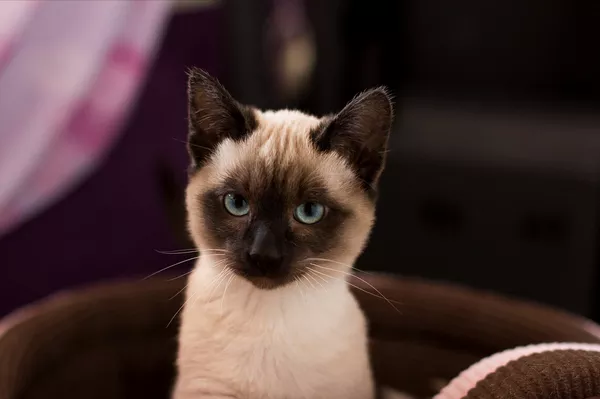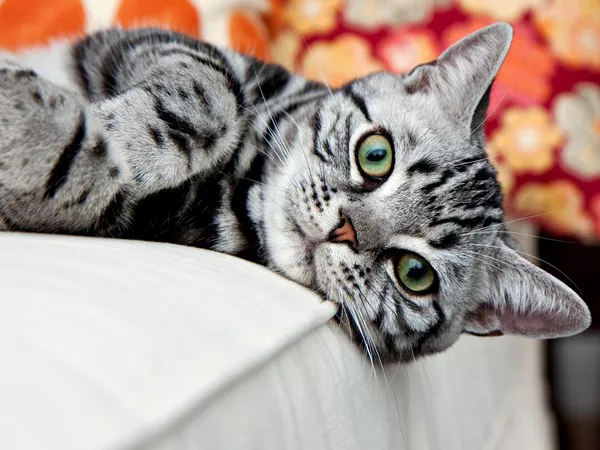Kittens are a source of joy and delight, but they can also be a source of concern when they experience health issues like diarrhea. Diarrhea in kittens is relatively common, but understanding its potential causes and when it warrants a trip to the veterinarian is essential for ensuring the well-being of your furry friend. In this article, we’ll explore the various reasons your kitten might have diarrhea and provide guidance on when it’s time to seek professional veterinary care.
Common Causes of Diarrhea in Kittens
Dietary Changes: One of the most common causes of diarrhea in kittens is a sudden dietary change. Whether you’ve introduced a new brand of cat food, given them table scraps, or switched from dry to wet food, their sensitive digestive systems can react negatively to abrupt adjustments.
Food Allergies or Sensitivities: Kittens, like humans, can have food allergies or sensitivities. Certain ingredients in their food may trigger gastrointestinal distress and lead to diarrhea. Common culprits include dairy products and grains.
Parasites: Intestinal parasites such as roundworms, tapeworms, and giardia are notorious for causing diarrhea in kittens. These parasites can infect kittens through contaminated food, water, or contact with infected animals.
Infections: Bacterial or viral infections can affect the gastrointestinal tract, leading to diarrhea. Kittens are particularly vulnerable to infections, and conditions like feline distemper or salmonella can result in diarrhea.
Stress and Anxiety: Changes in the kitten‘s environment, such as moving to a new home or exposure to unfamiliar people or animals, can cause stress and anxiety, which can manifest as diarrhea.
Overeating: Kittens are known for their enthusiasm when it comes to food. Overeating can lead to gastrointestinal upset and diarrhea.
Toxic Ingestion: Kittens, in their exploration of the world, may ingest substances that are toxic to them, including plants or household chemicals. This can result in diarrhea and potentially be life-threatening.
Medical Conditions: Certain medical conditions, such as inflammatory bowel disease (IBD) or pancreatitis, can lead to chronic diarrhea in kittens. These conditions require professional diagnosis and management.
When to Be Concerned
Not all instances of kitten diarrhea require immediate veterinary attention, but certain signs should prompt a visit to the vet:
Dehydration: If your kitten shows signs of dehydration, including dry gums, sunken eyes, excessive lethargy, or a loss of skin elasticity, it’s crucial to consult a veterinarian.
Blood in the Stool: The presence of blood in your kitten’s stool is a concerning symptom. It could indicate a severe issue, such as parasitic infections or internal bleeding, which requires prompt attention.
Severe or Prolonged Diarrhea: If your kitten experiences severe or prolonged diarrhea that persists for more than 24 hours, it’s time to see the vet. Chronic diarrhea can lead to dehydration and nutritional deficiencies.
Lethargy and Weakness: Kittens are typically active and playful. If your kitten becomes lethargic, weak, or disinterested in their surroundings, it could indicate a more severe underlying issue.
Vomiting: Frequent vomiting along with diarrhea can signal a more substantial problem. The combination of these symptoms should be taken seriously.
Loss of Appetite: A complete loss of appetite is a concerning sign, as kittens need proper nutrition to grow and stay healthy. Diarrhea accompanied by an unwillingness to eat is a red flag.
Fever: If your kitten develops a fever (body temperature above 103°F), it’s essential to consult with a vet, as it could indicate an infection or underlying medical condition.
When to Seek Veterinary Care
If you notice any of the concerning signs mentioned above, it’s advisable to seek veterinary care promptly. Even if your kitten’s diarrhea doesn’t exhibit these severe symptoms, but it persists for an extended period (more than 24-48 hours) or worsens, consulting a veterinarian is wise.
During your vet visit, be prepared to provide information about your kitten’s diet, any dietary changes, their vaccination history, and any possible exposure to toxic substances. The vet will conduct a thorough physical examination, possibly recommend blood tests, fecal exams, and other diagnostics to identify the underlying cause of the diarrhea.
Preventing Kitten Diarrhea
While not all instances of kitten diarrhea can be prevented, you can take several steps to minimize the risk:
Gradual Dietary Changes: When changing your kitten’s diet, do so gradually by mixing the old and new food to help their digestive system adapt.
High-Quality Nutrition: Provide a high-quality kitten food that meets their nutritional needs, avoiding feeding them with table scraps.
Parasite Control: Follow your vet’s recommendations for deworming and maintaining your kitten’s overall health.
Stress Management: Minimize stressors for your kitten, such as sudden environmental changes. Provide a stable and comfortable environment.
Safety: Kitten-proof your home by removing any potential hazards, including toxic plants and chemicals.
Conclusion
Kitten diarrhea is a common issue that can arise from various causes, some of which are relatively harmless, while others can be more severe. Recognizing the signs that indicate a need for veterinary attention is crucial to ensure the well-being of your furry friend. By promptly addressing your kitten’s health concerns, you can help them grow into a happy and healthy adult cat. Regular vet visits and preventive measures play an essential role in maintaining your kitten’s health and well-being.



























